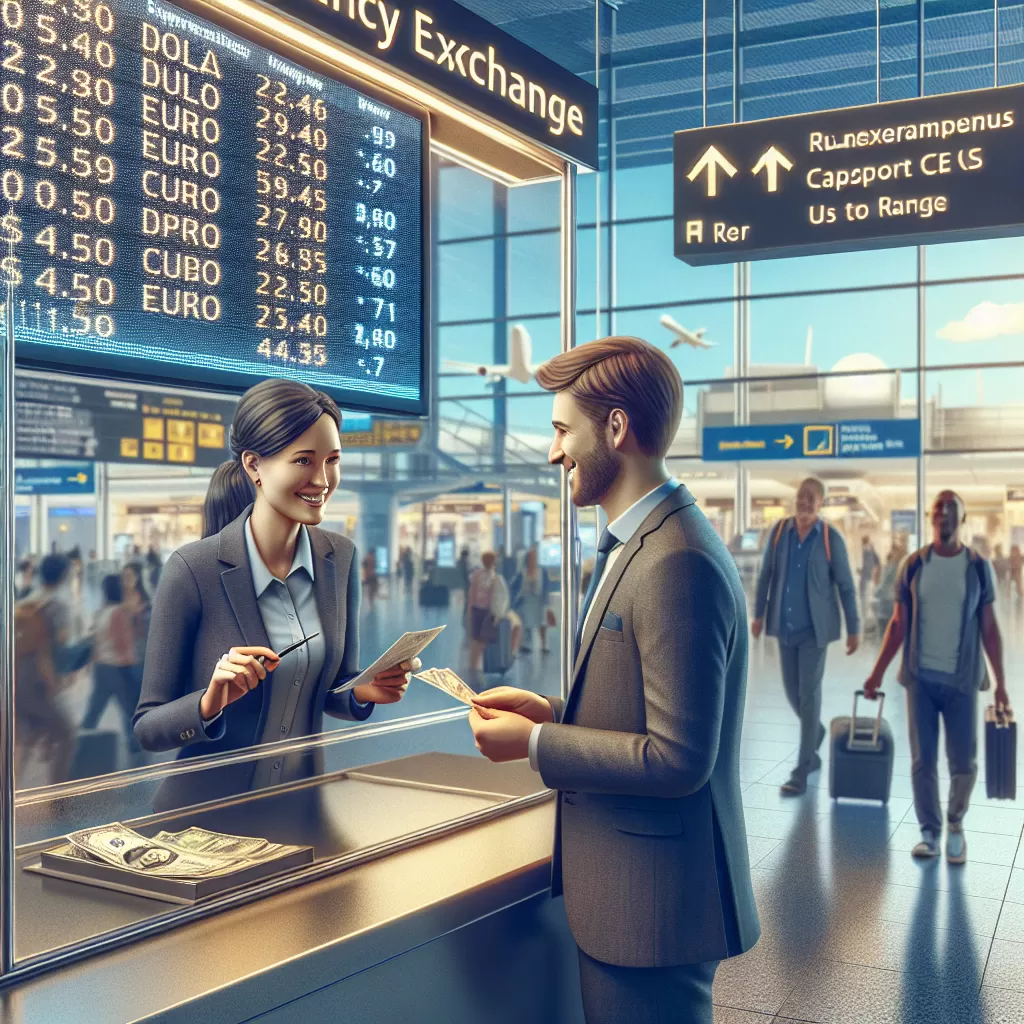Where Can I Go To Exchange Currency
Follow Currency Mart April 10, 2024
Where to purchase Foreign Currencies?

The Guardian's Guide to Currency Exchange Locations
Currency exchange, also known as foreign exchange or forex, is a crucial cog in the wheel of global travel and international business. Whether you are jetting off to an exotic location, making an overseas purchase, or conducting international trade, knowing where to exchange currency cannot be underestimated. As the Guardian of currency exchange, I've curated a comprehensive list of the best places to exchange currency and their unique advantages.Banks and Credit Unions
Banks and credit unions are probably the most traditional places to exchange currency. These financial institutions offer a safe and relatively easy method of converting money from one currency to another. The key advantage is the trust factor - their reputation often precedes them, so they are reliable options. It's advisable, however, to compare the rates of different banks and credit unions as they could vary significantly.Currency Exchange Bureaus
Currency exchange bureaus mostly operate in high-traffic areas such as airports, shopping centers, and near tourist attractions. Their primary business is foreign exchange, owing to their in-depth knowledge of the market and quick service. However, the convenience they offer comes with a slightly higher fee or unfavorable exchange rates.Online Currency Exchange Platforms
The world we live in is increasingly digital, and currency exchange hasn't been left behind. Online platforms such as Revolut, Wise (formerly TransferWise), and OFX offer competitive exchange rates and lower fees compared to traditional banks. They are convenient, allowing one to exchange currency right from their phone or computer. Though some platforms may require a waiting period for the conversion process.ATM Machines
Automated Teller Machines (ATMs) are another common, convenient way to exchange currency, particularly for travelers. When one uses a foreign ATM, the machine automatically converts the withdrawn amount into the respective local currency typically with a small transaction fee. It's recommended to use ATMs affiliated with major banks for lower fees and better security.Post Offices
In some countries such as the UK and Japan, post offices facilitate currency exchange services. They offer competitive exchange rates and often do not charge commission fees. Being government facilities, they offer a level of security and trust.Peer-to-Peer (P2P) Exchange
Peer-to-peer foreign exchange platforms connect individuals who want to exchange currencies. These platforms usually function online, whereby users can match up with others looking to swap the opposite currency pairs. P2P exchange is often cheaper than traditional methods since it eliminates the middleman.Traveler's Cheques
Traveler’s cheques, though somewhat outdated, still serve as an exchange method for some people. These pre-printed, fixed amount cheques are a secure way to carry travel money. However, they are slowly being phased out as more convenient methods rise in popularity.Hotel Currency Exchange
Some hotels provide currency exchange services for their guests. However, this option is generally more costly due to high commission rates or poor exchange rates. It should be used as a last resort or for small amounts.Using Local Retailers or Restaurants
In a pinch, some local shops or restaurants in tourist areas will exchange your money. Keep in mind this should be a last resort as the exchange rates and fees can be quite high. In conclusion, there are numerous options available for exchanging currency both physically and digitally. Always remember to pay close attention to exchange rates and any potential fees before deciding on an option to ensure that you're getting the most value for your money. As The Guardian of currency exchange, I recommend exploring and comparing all available methods. Happy exchanging!
Where to purchase Foreign Currencies?